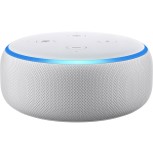Do Our Smart Devices Actually Listen to Us?
Are they listening? I am referring to those digital personal assistants we have grown to love such as Alexa, Siri, and Google Home.
You can order dinner, dim the lights, and get tomorrow’s weather forecast from the comfort of your recliner with these miracles of modern technology. But is there a dark side?
Have you ever talked to someone about a vacation you would like to take, or a car you are interested in, and when you log onto on your computer you get a stream of ads for those products?
To make this happen, the devices need to record your speech and send it to the cloud to be converted into text, then interpreted for commands. Usually this starts after you say a key word or phrase such as, “Alexa,” or “Hey Google.” However, in a room with normal conversation going on or noise from a TV in the background, these devices can confuse those conversations for the “wake” command. These conversations can then be recorded, and your speech processed, which is where the ads you may be seeing are coming from.
This can happen in any setting where these devices are present. At home, they could be sending parts of personal conversations, and in a work setting they could be sending confidential data such as credit card numbers, social security numbers, or protected health data. Generally, the companies that collect this data do not disclose how they store the data, or if they sell / share it with third parties.
Any app on your phone that you gave access to your microphone could also be doing the same thing. There is a fascinating study by Northeastern University called, When Speakers Are All Ears that tested some of the most popular devices and it is an eye opener!
Here are a few tips on how to protect your confidential data and your privacy:
- Do not put any of these devices in your workspace, if you cannot remove them, then turn off the mic or the entire device off during work hours or when you are having conversations you would like to protect.
- Keep the devices up to date to secure them.
- Use the app/web site to control how your data is used and to clear out your old data if they allow it. You may also be able to turn off setting such as “Use voice recording to improve X services.”
To protect your privacy and security when you are installing any new device or service, ask yourself when the permissions prompt comes up, “Do they really need this access?”. For instance, does the latest weather app really need to use your microphone and camera?
Being aware of the privacy settings on your devices, especially at work, is one of the main ways you can make sure your proprietary and confidential data is being protected.

